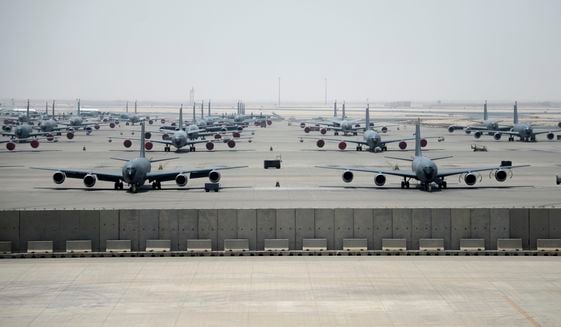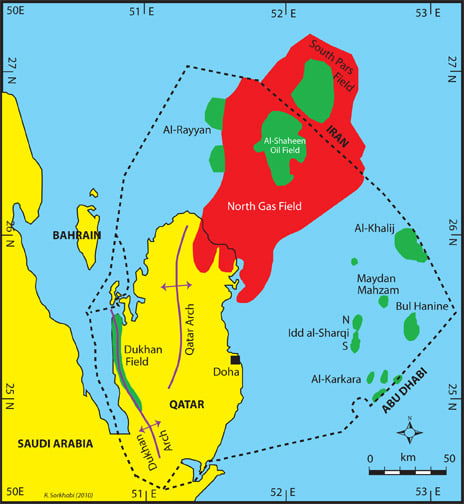In this article, we examine America’s war strategies, including its ability to launch an all out theater war against the Islamic Republic on Iran.
A follow-up article will focus on the History of US War Plans against Iran as well as the complexities underlying the Structure of Military Alliances.
**
Under present conditions, an Iraq style all out Blitzkrieg involving the simultaneous deployment of ground, air and naval forces is an impossibility.
For several reasons. US hegemony in the Middle East has been weakened largely as a result of the evolving structure of military alliances.
The US does not have the ability to carry out such a project.
There are two main factors which determine America’s military agenda in relation to the Islamic Republic of Iran.
1. Iran’s Military
There is the issue of Iran’s military capabilities (ground forces, navy, air force, missile defense), namely its ability to effectively resist and respond to an all out conventional war involving the deployment of US and Allied forces. Within the realm of conventional warfare, Iran has sizeable military capabilities. Iran is to acquire Russia’s S400 state of the art air defense system.
Iran is ranked as “a major military power” in the Middle East, with an estimated 534,000 active personnel in the army, navy, air force and the Islamic Revolutionary Guard Corps (IRGC). It has advanced ballistic missile capabilities as well as a national defense industry. In the case of a US air attack, Iran would target US military facilities in the Persian Gulf.
2. Evolving Structure of Military Alliances
The second consideration has to do with the evolving structure of military alliances (2003-2019) which is largely to the detriment of the United States.
Several of America’s staunchest allies are sleeping with the enemy.
Countries which have borders with Iran including Turkey and Pakistan have military cooperation agreements with Iran. While this in itself excludes the possibility of a ground war, it also affects the planning of US and allied naval and air operations.
Until recently both Turkey (NATO heavyweight) and Pakistan were among America’s faithful allies, hosting US military bases.
From a broader military standpoint, Turkey is actively cooperating with both Iran and Russia. Moreover, Ankara has acquired (July 12, 2019) ahead of schedule Russia’s state of the art S-400 air defense system while de facto opting out from the integrated US-NATO-Israel air defense system.
Needless to say the North Atlantic Treaty Organization is in crisis. Turkey’s exit from NATO is almost de facto. America can no longer rely on its staunchest allies. Moreover, US and Turkish supported militia are fighting one another in Syria.
Iraq has also indicated that it will not cooperate with the US in the case of a ground war against Iran.
Under present conditions, none of Iran’s neigbouring states including Turkey, Pakistan, Afghanistan, Iraq, Turkmenistan, Azerbaijan, and Armenia would allow US-Allied ground forces to transit through their territory. Neither would they cooperate with the US in the conduct of an air war.
In recent developments, Azerbaijan which in the wake of the Cold War became a US ally as well as a member of NATO’s partnership for peace has changed sides. The earlier US-Azeri military cooperation agreements are virtually defunct including the post-Soviet GUAM military alliance (Georgia, Ukraine, Azerbaijan and Moldova).
Bilateral military and intelligence agreements between Iran and Azerbaijan were signed in December 2018. In turn, Iran collaborates extensively with Turkmenistan. With regard to Afghanistan, the internal situation with the Taliban controlling a large part of Afghan territory, would not favor a large scale deployment of US and allied ground forces on the Iran-Afghan border.
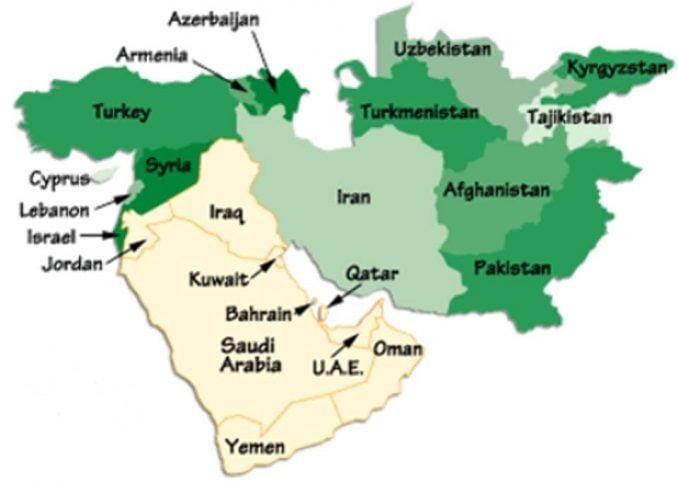 T
T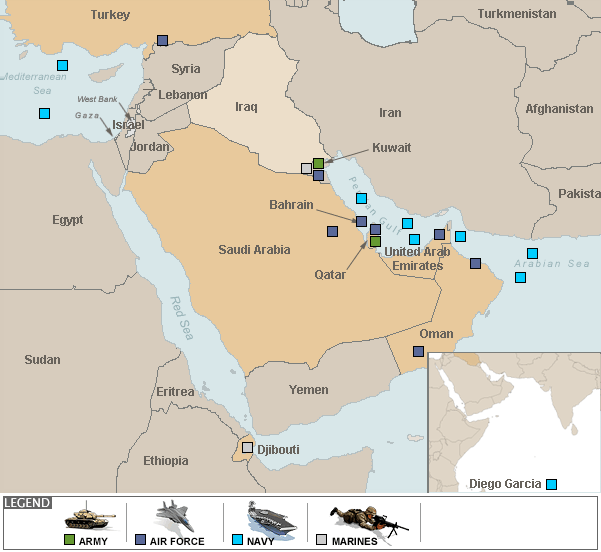
Visibly, the policy of strategic encirclement against Iran formulated in the wake of the Iraq war (2003) is no longer functional. Iran has friendly relations with neighbouring countries, which previously were within the US sphere of influence.
Under these conditions, a major conventional theater war by the US involving the deployment of ground forces would be suicide.
This does not mean, however, that war will not take place. In some regards, with the advances in military technologies, an Iraq-style war is obsolete.
We are nonetheless at a dangerous crossroads. Other diabolical forms of military intervention directed against Iran are currently on the drawing board of the Pentagon. These include:
- various forms of “limited warfare”, ie. targeted missile attacks,
- US and Allied support of terrorist paramilitary groups
- so-called “bloody nose operations” (including the use of tactical nuclear weapons),
- acts of political destabilization and color revolutions
- false flag attacks and military threats,
- sabotage, confiscation of financial assets, extensive economic sanctions,
- electromagnetic and climatic warfare, environmental modification techniques (ENMOD)
- cyberwarfare
- chemical and biological warfare.
US Central Command Forward Headquarters Located in Enemy Territory
Another consideration has to do with the crisis within the US Command structure.
 USCENTCOM is the theater-level Combatant Command for all operations in the broader Middle East region extending from Afghanistan to North Africa. It is the most important Combat Command of the Unified Command structure. It has led and coordinated several major Middle East war theaters including Afghanistan (2001), Iraq (2003). It is also involved in Syria.
USCENTCOM is the theater-level Combatant Command for all operations in the broader Middle East region extending from Afghanistan to North Africa. It is the most important Combat Command of the Unified Command structure. It has led and coordinated several major Middle East war theaters including Afghanistan (2001), Iraq (2003). It is also involved in Syria.
In the case of a war with Iran, operations in the Middle East would be coordinated by US Central Command with headquarters in Tampa, Florida in permanent liaison with its forward command headquarters in Qatar.
In late June 2019, after Iran shot down a U.S. drone President Trump “called off the swiftly planned military strikes on Iran” while intimating in his tweet that “any attack by Iran on anything American will be met with great and overwhelming force.”
US Central Command (CENTCOM), confirmed the deployment of the US Air Force F-22 stealth fighters to the al-Udeid airbase in Qatar, intended to “defend American forces and interests” in the region against Iran. (See Michael Welch, Persian Peril,Global Research, June 30, 2019). Sounds scary?
“The base is technically Qatari property playing host to the forward headquarters of U.S. Central Command.” With 11,000 US military personnel, it is described as “one of the U.S. military’s most enduring and most strategically positioned operations on the planet” (Washington Times). Al-Udeid also hosts the US Air Force’s 379th Air Expeditionary Wing, considered to be “America’s most vital overseas air command”.
What both the media and military analysts fail to acknowledge is that US CENTCOM’s forward Middle East headquarters at the al-Udeid military base close to Doha de facto “lies in enemy territory”
Since the May 2017 split of the Gulf Cooperation Council (GCC) Qatar has become a staunch ally of both Iran and Turkey (which is also an ally of Iran). While they have no “official” military cooperation agreement with Iran, they share in joint ownership with Iran the largest Worldwide maritime gas fields (see map below).
The split of the GCC has led to a shift in military alliances: In May 2017 Saudi Arabia blocked Qatar’s only land border. In turn Saudi Arabia as well as the UAE have blocked air transportation as well as commercial maritime shipments to Doha.
What is unfolding since May 2017 is a shift in Qatar’s trade routes with the establishment of bilateral agreements with Iran, Turkey as well as Pakistan. In this regard, Russia, Iran, and Qatar provide over half of the world’s known gas reserves.
The Al-Udeid base near Doha is America’s largest military base in the Middle East. In turn, Turkey has now established its own military facility in Qatar. Turkey is no longer an ally of the US. Turkish proxy forces in Syria are fighting US supported militia.
Turkey is now aligned with Russia and Iran. Ankara has now confirmed that it will be acquiring Russia’s S-400 missile air defense system which requires military cooperation with Moscow.
Qatar is swarming with Iranian businessmen, security personnel and experts in the oil and gas industry (with possible links to Iran intelligence?), not to mention the presence of Russian and Chinese personnel.
Question. How on earth can you launch a war on Iran from the territory of a close ally of Iran?
From a strategic point of view it does not make sense. And this is but the tip of the iceberg.
Notwithstanding the rhetoric underlying the official US-Qatar military relationship, The Atlantic Council, a think tank with close ties to both the Pentagon and NATO, confirms that Qatar is now a firm ally of both Iran and Turkey:
Put simply, for Qatar to maintain its independence, Doha will have essentially no choice but to maintain its strong partnership with Turkey, which has been an important ally from the perspective of military support and food security, as well as Iran. The odds are good that Iranian-Qatari ties will continue to strengthen even if Tehran and Doha agree to disagree on certain issues … On June 15 [2019], President Hassan Rouhani emphasized that improving relations with Qatar is a high priority for Iranian policymakers. … Rouhani told the Qatari emir that “stability and security of regional countries are intertwined” and Qatar’s head of state, in turn, stressed that Doha seeks a stronger partnership with the Islamic Republic. (Atlantic Council, June 2019, emphasis added)
What this latest statement by the Atlantic Council suggests is while Qatar hosts USCENTCOM’s forward headquarters, Iran and Qatar are (unofficially) collaborating in the area of “security” (i e. intelligence and military cooperation).
Sloppy military planning, sloppy US foreign policy? sloppy intelligence?
Trump’s statement confirms that they are planning to launch the war against Iran from their forward US Centcom headquarters at the Al Udeid military base, located in enemy territory. Is it rhetoric or sheer stupidity?
The Split of the GCC
The split of the GCC has resulted in the creation of a so-called Iran-Turkey-Qatar axis which has contributed to weakening US hegemony in the Middle East. While Turkey has entered into a military cooperation with Russia, Pakistan is allied with China. And Pakistan has become a major partner of Qatar.
Following the rift between Qatar and Saudi Arabia, the Gulf Cooperation Council (GCC) is in disarray with Qatar siding with Iran and Turkey against Saudi Arabia and the UAE.
Qatar is of utmost strategic significance because it shares with Iran the world’s largest maritime gas fields in the Persian Gulf. (see map above). Moreover, since the GCC split-up Kuwait is no longer aligned Saudi Arabia. It nonetheless maintains a close relationship with Washington. Kuwait hosts seven active US military facilities, the most important of which is Camp Doha.
Needless to say, the May 2017 split of the GCC has undermined Trump’s resolve to create an “Arab NATO” (overseen by Saudi Arabia) directed against Iran. This project is virtually defunct, following Egypt’s withdrawal in April 2019.
The Gulf of Oman
With the 2017 split up of the Gulf Cooperation Council (GCC), Oman appears to be aligned with Iran. Under these circumstances, the transit of US war ships to the headquarters of the US Fifth fleet in Bahrain not to mention the conduct of naval operations in the Persian Gulf are potentially in jeopardy.
The Fifth Fleet is under the command of US Naval Forces Central Command(NAVCENT). (NAVCENT’s area of responsibility consists of the Red Sea, the Gulf of Oman, the Persian Gulf and the Arabian Sea).
With the split up of the GCC, Oman is now aligned with Iran. Under these circumstances, the transit of US war ships to the headquarters of the US Fifth fleet in Bahrain not to mention the conduct of naval operations in the Persian Gulf would potentially be in jeopardy.
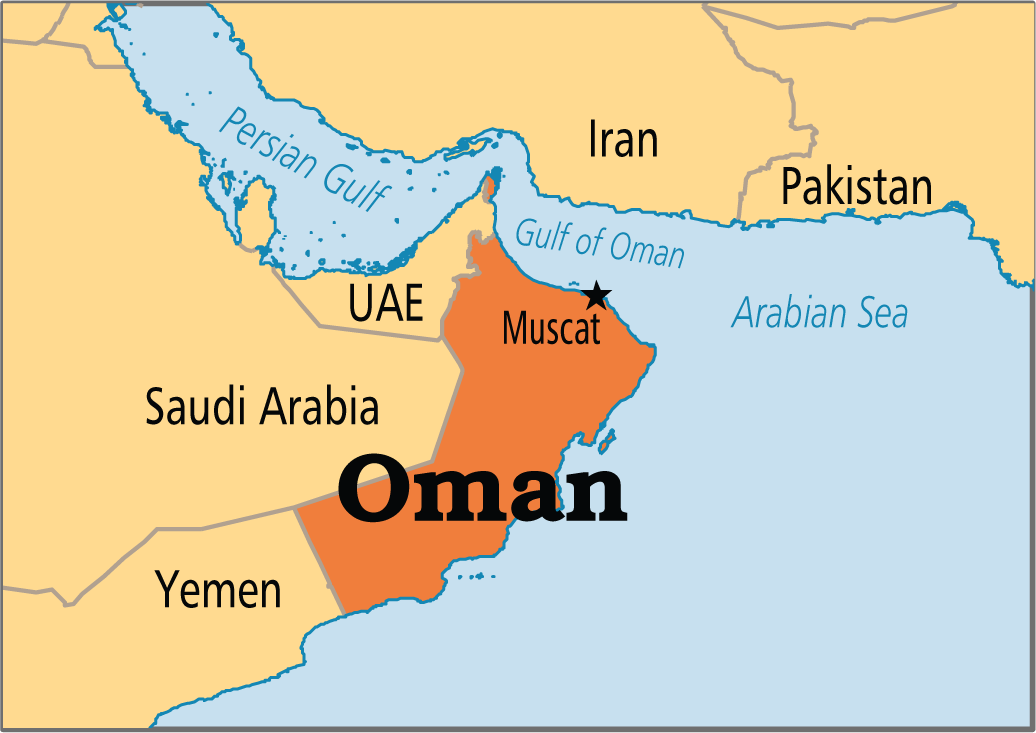 The strait of Hormuz which constitutes the entry point to the Persian Gulf from the Gulf of Oman is controlled by Iran and the Sultanate of Oman (see map, Oman territory at the tip of the Strait).
The strait of Hormuz which constitutes the entry point to the Persian Gulf from the Gulf of Oman is controlled by Iran and the Sultanate of Oman (see map, Oman territory at the tip of the Strait).
The width of the strait at one point is of the order of 39 km. All major vessels must transit through Iran and/or Oman territorial waters, under so-called customary transit passage provisions of the United Nations Convention on the Law of the Sea.
More generally, the structure of alliances is in jeopardy. The US cannot reasonably wage a full-fledged conventional theatre war on Iran without the support of its longstanding allies which are now “sleeping with the enemy”.
Trump’s Fractured “Arab NATO”. History of the Split up of the GCC.
Amidst the collapse of America’s sphere of influence in the Middle East, Trump’s Make America Great Again (MAGA) consisted at the outset of his presidency in an improvised attempt to rebuild the structure of military alliances. What the Trump administration had in mind was the formation of a Middle East Strategic Alliance (MESA), or “Arab NATO”. This US-sponsored blueprint was slated to include Egypt and Jordan together with the six member states of the GCC.
The draft of the MESA Alliance had been prepared in Washington prior to Trump’s historic May 2017 visit to Saudi Arabia, meeting up with King Salman, leaders of the GCC as well as “more than 50 high-ranking officials from the Arab and Islamic worlds in an unprecedented US-Islamic summit.”
The Riyadh Declaration, issued at the conclusion of the summit on May 21, 2017, announced the intention to establish MESA in Riyadh.” (Arab News, February 19, 2019). The stated mandate of the “Arab NATO” was to “to combat Iranian hegemony” in the Middle East.
Two days later on May 23, 2017 following this historic meeting, Saudi Arabia ordered the blockade of Qatar, called for an embargo and suspension of diplomatic relations with Doha, on the grounds that The Emir of Qatar was allegedly collaborating with Tehran.
What was the hidden agenda? No doubt it had already been decided upon in Riyadh on May 21, 2017 with the tacit approval of US officials.
The plan was to exclude Qatar from the proposed MESA Alliance and the GCC, while maintaining the GCC intact.
What happened was a Saudi embargo on Qatar (with the unofficial approval of Washington) which resulted in the fracture of the GCC with Oman and Kuwait siding with Qatar. In other words, the GCC was split down the middle. Saudi Arabia was weakened and the “Arab NATO” blueprint was defunct from the very outset.
May 21, 2017: US-Islamic Summit in Riyadh
May 23, 2017: The blockade and embargo of Qatar following alleged statements by the Emir of Qatar. Was this event staged?
June 5, 2019: Saudi Arabia, the UAE, Bahrain, and Egypt sever diplomatic relations, cut off land, air and sea transportation with Qatar accusing it of supporting Iran.
June 7, 2017, Turkey’s parliament pass legislation allowing Turkish troops to be deployed to a Turkish military base in Qatar
January 2018, Qatar initiates talks with Russia with a view to acquiring Russia’s S-400 air defense system.
Flash forward to mid-April 2019: Trump is back in Riyadh: This time the Saudi Monarchy was entrusted by Washington to formally launching the failed Middle East Strategic Alliance (MESA) (first formulated in 2017) despite the fact that three of the invited GCC member states, namely Kuwait, Oman and Qatar were committed to the normalization of relations with Iran. In turn, the Egyptian government of President Sisi decided to boycott the Riyadh summit and withdraw from the “Arab NATO” proposal. Cairo also clarified its position vis a vis Tehran. Egypt firmly objected to Trump’s plan because it “would increase tensions with Iran”.
Trump’s objective was to create an “Arab Block”. What he got in return was a truncated MESA “Arab Block” made up of a fractured GCC with Saudi Arabia, UAE, Bahrain and Jordan.
Egypt withdraws.
Kuwait and Oman officially took a neutral stance.
Qatar sided with the enemy, thereby further jeopardizing America’s sphere of influence in the Persian Gulf.
An utter geopolitical failure. What kind of alliance is that.
And US Central Command’s Forward headquarters is still located in Qatar despite the fact that two years earlier on May 23, 2017, the Emir of Qatar Sheikh Tamim bin Hamad Al Thani, was accused by Saudi Arabia and the UAE of collaborating with Iran.
It is unclear who gave the order to impose the embargo on Qatar. Saudi Arabia would not have taken that decision without consulting Washington. Visibly, Washington’s intent was to create an Arab NATO Alliance (An Arab Block) directed against Iran “to do the dirty work for us”.
Trump and the Emir of Qatar, UN General Assembly, October 2017, White House photo
The rest is history, the Pentagon decided to maintain US Central Command’s forward headquarters in Qatar, which happens to be Iran’s closest ally and partner.
A foreign policy blunder? Establishing your “official” headquarters in enemy territory, while “unofficially” redeploying part of the war planes, military personnel and command functions to other locations (e.g. in Saudi Arabia)?
No press reports, no questions in the US Congress. Nobody seemed to have noticed that Trump’s war on Iran, if it were to be carried out, would be conducted from the territory of Iran’s closest ally.
An impossibility?
***
Part II of this essay focuses on the history and contradictions of US war preparations directed against Iran starting in 1995 as well as the evolution of military alliances.
*
Note to readers: please click the share buttons above or below. Forward this article to your email lists. Crosspost on your blog site, internet forums. etc.
The original source of this article is Global Research
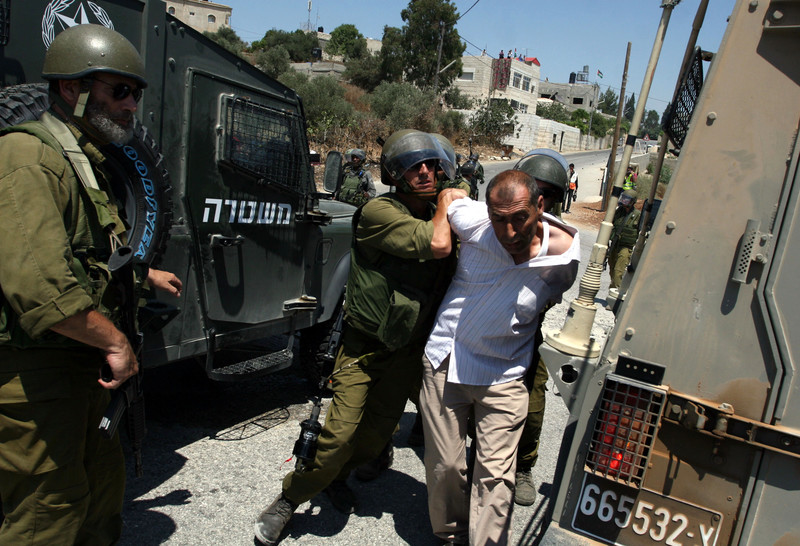

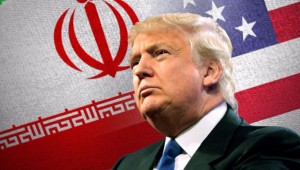
 T
T

